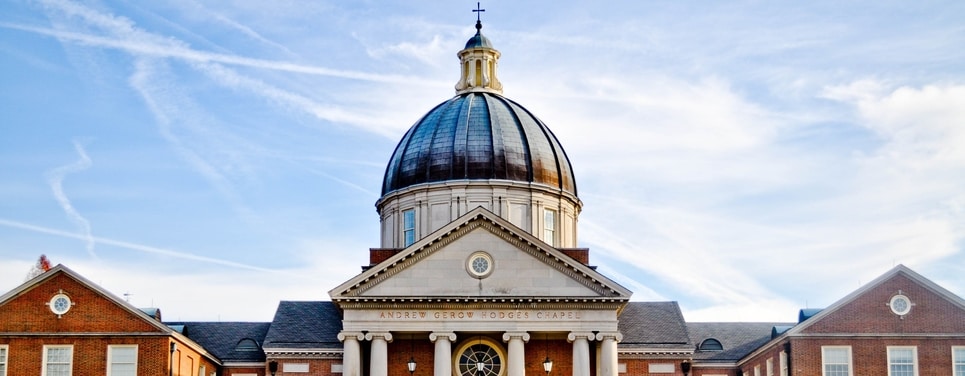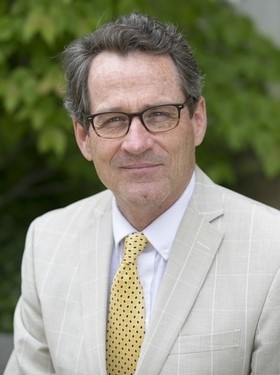
Hodges Chapel, Beeson Divinity School. Photo by Hart and Mary / CC BY
“No person shall be admitted into Holy Orders who has not been properly trained in Holy Scripture, and the Doctrine, Discipline and Worship of this Church.” ADOTS Constitution and Canons
In order to train clergy for worship in the Anglican tradition, and in addition to well-established Anglican seminaries in the northern United States, the ACNA is encouraging Anglican studies programs at schools of divinity across North America – and notably in the southern U.S. As one example, ADOTS has approved a parish-based credentialing track at the Mission School of Ministry in Chattanooga.

Dr. Gerald McDermott
Also recently established is the Institute of Anglican Studies at Beeson Divinity School, Samford University, Birmingham, AL. Begun in 2014, Dr. Gerald McDermott now leads the Institute as Anglican Chair of Divinity and professor of history and doctrine. He talked with ADOTS Communications Associate Rachel Moorman about how the program is flourishing and expanding.
The Anglican Institute at Beeson is relatively new. What’s the latest with the program?
ACNA has officially approved us as a location for Anglican training. Our principal offering is the residential Master of Divinity degree, through which we provide an Anglican Certificate, with courses in Anglican history and doctrine, sacramental theology, spiritual theology, and liturgics. Four local Anglican churches provide internships. We have weekly morning prayer and Evensong.
We are also beginning to offer an Anglican Intensive program, where people who already have an M.Div. or MA in theology from non-Anglican seminaries can get specifically Anglican training and a certificate.
What do you think are some of the most important aspects of forming new faithful, competent priests for the Church’s mission?
It is important that they learn and experience what makes Anglicanism distinctive — liturgy and sacraments. They need to see that this is not just a matter of Sunday morning, but a matter of living all of life liturgically and sacramentally. This is the beauty of holiness. It takes some years of living life liturgically and sacramentally for a priest to be competent as an Anglican director of souls.
As a new Anglican, I was surprised to learn that the majority of the world’s Anglicans are African. How does that shift (albeit, over many years) impact an Anglican program at a culturally Western university?
We train our students in the recent history of Anglicanism, where the majority of Anglicans (and Christians!) are in the Global South, including Africa. We try to learn from African Anglicanism, and are grateful for their bold leadership in the last twenty years. We teach our students that in some ways African Anglicans can more easily understand the mindset of the early church than we Westerners can, because of the Enlightenment presuppositions we have been raised with.
Are you seeing an increased interest in studying Anglicanism since the formation of the ACNA?
Definitely. It is happening all over the country. Thousands of evangelicals find that Word alone is not enough. They realize that the early church worshiped with Word and Sacrament, through a beautiful liturgy. They want the sense of mystery and holiness that the Anglican tradition is rich with. They want to learn about these riches.
For more information on the Anglican Institute at Beeson, contact Dr. McDermott by email or phone (205.726.4375).
